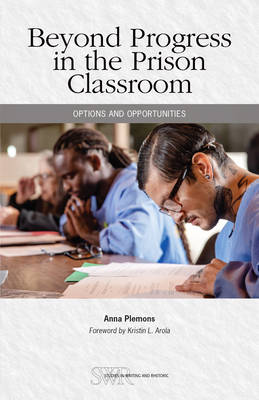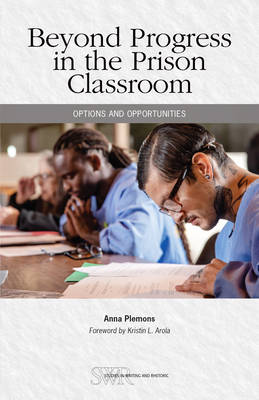
- Afhalen na 1 uur in een winkel met voorraad
- Gratis thuislevering in België vanaf € 30
- Ruim aanbod met 7 miljoen producten
- Afhalen na 1 uur in een winkel met voorraad
- Gratis thuislevering in België vanaf € 30
- Ruim aanbod met 7 miljoen producten
Omschrijving
Through a mix of history, theory, and story, Anna Plemons explores the fate of the Arts in Corrections (AIC) program at New Folsom Prison in California in order to study prison education in general as well as the disciplinary goals of rhetoric and composition classrooms.
When viewed as a microcosm of the broader enterprise, the prison classroom highlights the way that composition and rhetoric as a discipline continues to make use of colonial ways of knowing and being that work against the decolonial intentions of the field. Plemons suggests that a truly decolonial turn in composition cannot be achieved as long as economic logics and rhetorics of individual transformation continue to be the default currency for ascribing value in prison writing programs specifically and in out-of-school writing communities more generally. Indigenous scholarship provides the theoretical basis for Plemons's proposed intervention in the ways it both pushes back against individualized, economic assessments of value and describes design principles for research and pedagogy that are respectful, reciprocal, and relational.
Beyond Progress in the Prison Classroom includes narrative selections from the author and current and former AIC participants, inviting readers into the lives of incarcerated authors and demonstrating the effects of relationality on prison-scholars, ultimately upending the misconception that these writers and their teachers exist apart from the web of relations beyond the prison walls. With contributions from incarcerated prison-scholars Ken Blackburn, Bryson L. Cole, Harry B. Grant Jr., Adam Hinds, Hung-Linh "Ronnie" Hoang, Andrew Molino, Michael L. Owens, Wayne Vaka, and Martin Williams.
About the CCCC Studies in Writing & Rhetoric (SWR) Series
In this series, the methods of studies vary from the critical to historical to linguistic to ethnographic, and their authors draw on work in various fields that inform composition--including rhetoric, communication, education, discourse analysis, psychology, cultural studies, and literature. Their focuses are similarly diverse--ranging from individual writers and teachers, to classrooms and communities and curricula, to analyses of the social, political, and material contexts of writing and its teaching.
Specificaties
Betrokkenen
- Auteur(s):
- Uitgeverij:
Inhoud
- Aantal bladzijden:
- 185
- Taal:
- Engels
- Reeks:
Eigenschappen
- Productcode (EAN):
- 9780814134658
- Verschijningsdatum:
- 3/11/2019
- Uitvoering:
- Paperback
- Formaat:
- Trade paperback (VS)
- Afmetingen:
- 142 mm x 216 mm
- Gewicht:
- 249 g

Alleen bij Standaard Boekhandel
Beoordelingen
We publiceren alleen reviews die voldoen aan de voorwaarden voor reviews. Bekijk onze voorwaarden voor reviews.











